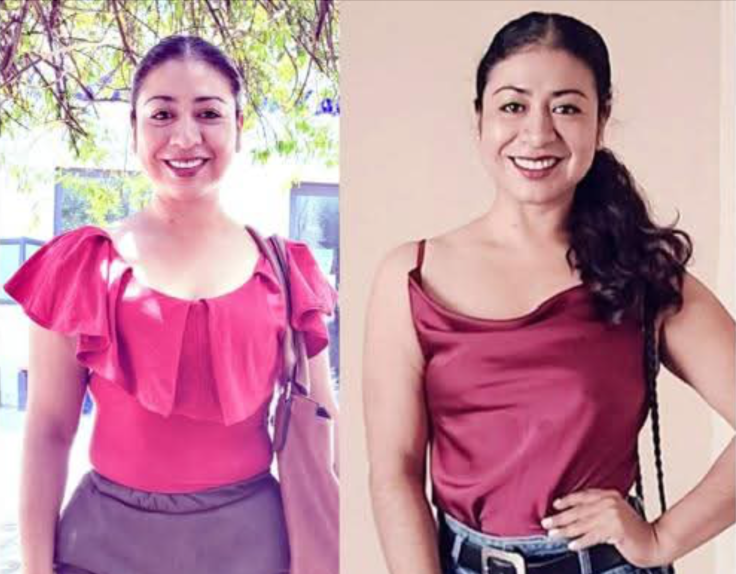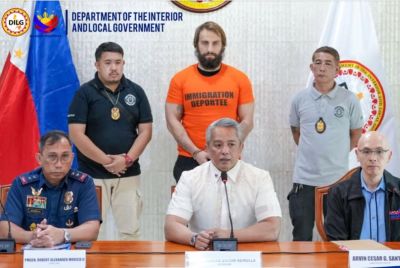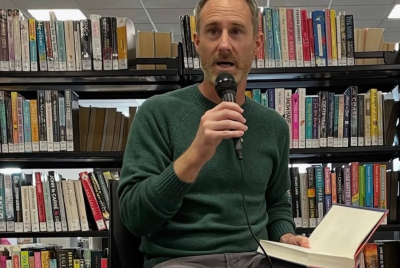Mexican Human Rights Activist Found Dead After Denouncing Groupchat Sharing Women's Nudes

After vanishing last October, human rights activist and lawyer Sandra Estefana Domínguez Martínez and her husband Alexander Hernández have been discovered buried in hidden graves where their bodies were unearthed last week in Mexico's Santiago Sochiapan, Veracruz —a five-hour journey from their Oaxaca home.
Before her disappearance, Domínguez had lodged official complaints against government figures, including one Donato Vargas Jimenez who served as 'Social Peace Coordinator.' She accused these officials of sharing explicit images of Indigenous Ayuuk women, including pictures of herself, through a WhatsApp group rife with misogynistic content.
Seven-Month Nightmare Ends in Heartbreak as Missing Couple Found Buried
'This isn't the ending we dreamed of,' sobbed Domínguez's sister at a tense press gathering. The grim discovery came after months of desperate searching when Oaxaca's Attorney General finally confirmed what many had feared-the couple had been murdered and hidden in makeshift graves.
The Attorney General's Office has been frequently posting a missing person's poster calling for Domínguez's return, offering £19,070 (500000 pesos) for information that assists in her localisation. The last repost was made on 24 April, the day Domínguez and Hernández were found.
Family members made the heart-wrenching identifications—Domínguez by her sister, a practicing odontologist, and Hernández by the distinctive tattoos that marked his body. The couple had last been spotted at their María Lombardo de Caso home on 4 October before seemingly vanishing into thin air. The details about their autopsy report and cause of death have not been revealed yet.
The investigation spanned numerous locations across two states and the search dragged on for nearly seven months before coming to its tragic conclusion. Their abandoned car turned up in Playa Vicente while Sandra's mobile was recovered in El Nigromante days after they went missing.
Police have detained one suspect at a property called 'El Capricho,' though they've kept mum about specific charges or the individual's connection to the killings.
Domínguez's close friend and fellow Oaxacan activist, Joaquín Galvan, linked her disappearance to her work, stating: 'I think it's important to consider every one of these situations she was exposed to understand what happened, what is happening, and to be able to find her.'
Rightful Condemnation Leads to Death Threats
In 2020, Domínguez filed a criminal complaint against state officials who participated in a misogynist WhatsApp group where explicit images of Indigenous Ayuuk women were circulated— images that included her own.
In the complaint, Domínguez named Vargas, the local official having title of 'Social Peace Coordinator.' She also blamed Oaxaca governor Salomón Jara Cruz for enabling this behaviour.
Following her complaint, Domínguez began receiving death threats. According to Galvan, Domínguez specialised in cases of violence against women and was well aware of the dangers of her profession. 'Sandra has always handled delicate cases,' he explained. 'If it wasn't cases involving femicides, it was cases involving rape and so on. She was always exposed to threats.'
At the time of her disappearance, Domínguez had temporary local protection measures. Galvan had reportedly urged her to participate in the federal protection programme for journalists and activists he's enrolled in, but his efforts were in vain. 'It was only when we were handling some major case that certain protective orders were issued locally, but they were temporary,' he explained. 'She never had a permanent protection mechanism."
The nature of Domínguez's work made many suspects with Vargas being the one accused to have been involved in her disappearance as Amnesty highlighted the crude WhatsApp group chat which is a crucial factor in the case. The needle of suspicion surrounding Vargas are exacerbated by a number of terrifying allegations posed against him.
Violence, Threats And Fear: The Accusations Against Vargas
It was in 2023 when Vargas faced disturbing allegations of domestic violence by his ex-partner, Aracely Cruz, who had filed a complaint in 2022. Before Vargas assumed office, she had alleged that Vargas strangled her and threatened to pour acid on her.
Frustrated by the lack of accountability, she wrote on X: 'If something happens to me, I hold Salomón Jara, Jesús Romero and everything in the government responsible; he had to kill me for you to believe me.' Although the residents sought his immediate removal, Vargas continues to remain a free man holding office.
The lack of accountability surrounding Domínguez's case has further incited fury within her community.
Women Rally to Demand Truth And Justice
Following her body's recovery, Domínguez's kin gathered for a press conference with supporters dressed in purple, a symbol of the fight against sex-based violence, and held placards which noted that 'The Government Did It,' 'Not One More Missing Woman.'
'We confirm that we have found Sandra,' her sister told the crowd, adding that 'She exposed something many tried to hide. She raised her voice for everyone's dignity, putting her own life at risk.'
Yésica Sánchez Maya, an Oaxacan official, announced that a memorial will be held in Domínguez's honour on 29 April.
Domínguez and Hernández join a grim tally of activists who've paid with their lives in Mexico, where female human rights defenders face particularly severe dangers. The statistics are horrifying—ten women or girls murdered daily across the country.
For those who continue Domínguez's work, justice means more than catching her killers. It requires dismantling the structures that left her vulnerable despite known threats—a system where powerful men seemingly face no consequences for threats, harassment, or worse.
© Copyright IBTimes 2025. All rights reserved.





















